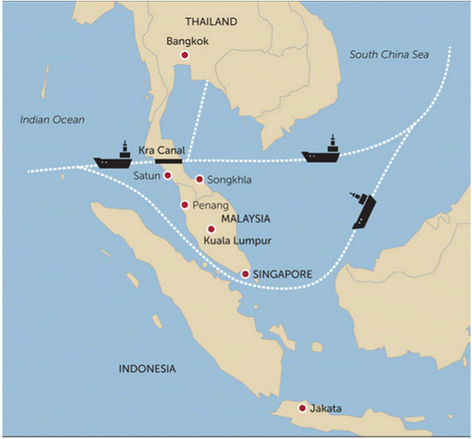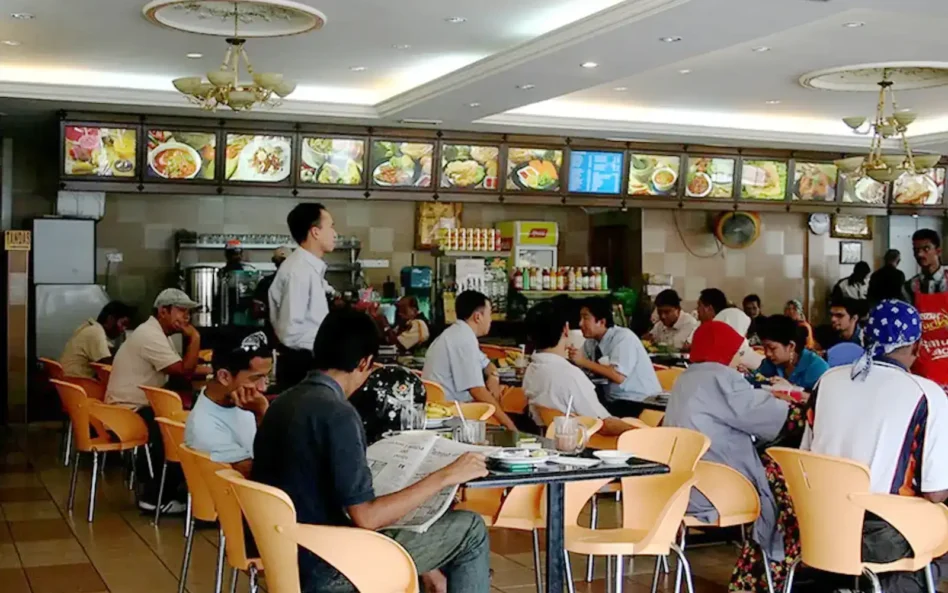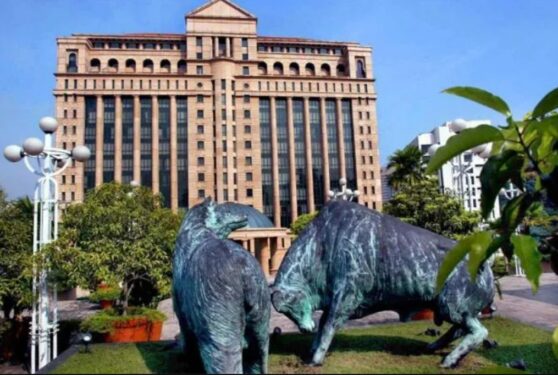By Asia Sentinel
FOR decades, Malaysia’s Government-linked companies (GLC) have functioned as a major instrument of Government policy as well as a gift that goes on giving endlessly, providing slush funds for political parties, boodle for corrupt officials, a place to stash incompetent political pals and a continuing drag on the country’s economy.
This has been true across a string of political dynasties that accelerated with the arrival of former Prime Minister Tun Dr Mahathir Mohamad in 1981, who turned them into a cashbox for the UMNO.
It was then re-accelerated with the current prime minister, Tan Sri Muhyiddin Yassin, who has refined the practice considerably to the point where Russian-style oligarchies are slowly taking hold, totally against the spirit why GLCs were formed in the first place.
One of Mahathir’s closest chums is Tan Sri Syed Mokhtar Al-Bukhary, whose holdings include stakes in the Government-linked Media Prima, which controls broadcaster TV3 and the New Straits Times.
Other interests Mokhtar has picked up from the Malaysian Government are stakes in Bernas, which holds an extended rice trade monopoly, Pos Malaysia, MMC Bhd and DRB Hicom.
Mokhtar in last year won, without competitive bid, the lucrative right to wire the country for 5G from Muhyiddin’s newly minted Perikatan Nasional coalition not long after Mahathir resigned as premier.
Although GLCs like Maybank, Petronas and Sime Darby have been run extremely well by a groomed professional Malay class, countless thousands of these companies are inefficient, mismanaged, embezzled, insolvent entities accumulating massive losses.
State GLCs tend to be heavily involved in land development, leading to many irregularities and scandals, of which only a very few ever reach public attention.
Over recent decades, SPV GLCs specifically set up to exploit rising hi-tech opportunities in multimedia and biotechnology have been dismal failures.
Many of the corridor authorities set up under former Prime Minister Tun Abdullah Ahmad Badawi to develop rural regions and bring investment have actually hindered it, pushing out private enterprise in favor of public enterprises.
Many GLCs, especially within the northern states on the peninsula, are places to domicile retired politicians. These positions are seen more as seats on a gravy-train rather than as a catalyst for development and attracting private investment.
Not all state SEDCs have been as successful as the Penang Development Corporation (PDC), or the Johor SEDC, known as JCorp.
Just as a new Malay professional class has been nurtured within the best-run GLCs, a class of dishonest and opportunistic officers has been unintentionally nurtured in many others, particularly those within the states.
Cases of dishonesty and embezzlement are most often covered up to avoid scandals. The poor financial position of a number of state economic development corporations, points to the regions, this culture of cover up is most prevalent.
The apparent mission, lines of control, and management of GLCs have changed over successive administrations. After the infamous race riots of May 1969, the New Economic Policy (NEP) was aimed at boosting bumiputra participation in agriculture, eradicating poverty among the community and redistributing equity towards bumiputras.
Nothing changed during Pakatan’s rule
Under the administration of Datuk Seri Najib Tun Razak, there was only a selective interest in GLCs, such as CIMB Bank, run by Najib’s brother.
It was with the Finance Ministry-backed new sovereign wealth fund 1Malaysia Development Berhad (1MDB), that Umno hit its stride, leading to US$4.2 bil in debt, misuse and theft, the embezzlement of RM 2.67 bil in favour of businessman Low Taek Jho, and the conviction and jail term for Najib himself, over the scandal although Najib is free on appeal.
The Pakatan Harapan coalition campaigned on the promise that upon coming to power in May 2018, no political appointments would be made to GLCs. However, upon succeeding to power, a second-term Mahathir once again made political appointments.
The then Rural and Regional Development Minister Datuk Seri Rina Harun appointed a number of Parti Pribumi Bersatu Malaysia (Bersatu) politicians to boards of GLCs under the ministry’s control, thus bringing back political patronage.
In addition, Mahathir set up a new Economic Affairs Ministry (MEA) and appointed Datuk Seri Anwar Ibrahim’s archrival Datuk Seri Mohamed Azmin Ali as the person in charge. The MEA took control of numerous GLCs that were under the Finance Ministry (MOF), headed by DAP leader Lim Guan Eng, with Khazanah Nasional Bhd and PNB moving to the Prime Minister’s Department and Mahathir appointing himself as chairman.
This gave Mahathir ultimate control over firms like Maybank, CIMB, Tenaga Nasional, Axiata, Sime Darby and Petronas and the healthcare conglomerate IHH.
With voices within Pakatan calling for disinvestment, Mahathir once again began moving companies out – to a group of close associates. In particular, Mokhtar increased his holdings in Media Prima, which controls broadcaster TV3 and the New Straits Times.
These are just a few of the corporate interests he has picked up from the Malaysian Government, which include stakes in Bernas, which holds an extended monopoly on rice trade, Pos Malaysia, MMC Berhad, and DRB Hicom.
Muhyiddin, upon coming to power in February 2020, utilised board positions on GLCs to develop enough political patronage to prop up his slim majority Government.
Very quickly into his tenure as Prime Minister, Muhyiddin disbanded the Economic Affairs Ministry (MEA), which Azmin had controlled, moving numerous GLCs under the Prime Minister’s Department and Muhyiddin’s personal control, providing him with more control than Mahathir even had during his two tenures as prime minister.
GLCs within the Rural Development Ministry were put under Bersatu’s Mersing MP, Datuk Abdul Latiff Ahmad, within Muhyiddin’s home state of Johor, who is said to be a close confidante.
This is strategically important because GLCs under this ministry can greatly assist in garnering the rural vote during elections. These include MARA, FELCRA, and other regional development authorities.
Powerful GLCs that the Finance Ministry controls such as the EPF, KWAP, are in the hands of Datuk Seri Zafrul Abdul Aziz, from the financial sector, as an independent minister.
Monopolies and oligopolies
Muhyiddin, also appointed Tengku Zafrul as a director of the state-owned investment fund Khazanah, while Azmin is still a director as well. Three of nine directors on the board of Khazanah are Prime Minister and Ministers.
This means that politicians now have increased their control over a massive part of the Malaysian economy. Many, if not almost all appointments to the boards of GLCs were made to shore up Muhyiddin’s Government without any considerations of meritocracy.
This brings a number of concerns.
As most activities of GLCs are rent-seeking in lucrative and regulated sectors, value is not being created. Innovation within the Malaysia economy is suffering, as bureaucrats and politicians have not shown themselves to be capable of managing change. This destroys the potential dynamism of the economy.
In addition, GLCs are taking away opportunities for potential local and foreign investors, leaving a very subdued private investment environment. Special concessions and privileges to GLCs completely deter private investment within many sectors.
Monopolies and oligopolies created by the Government are creating inefficiency, with consumers forced to pay above parity pricing for goods and services relative to the rest of the region.
The signs of inefficiency and lack of dynamism are there. The agriculture sector lacks diversity, the manufacturing base is lopsided, services are high-priced and the telecommunications sector lags the rest of the region.
Lack of transparency both within GLCs and the marketplace has nurtured a fertile environment for corruption and embezzlement. Many scandals never reach the public arena, where those working within GLCs know that there is little chance of getting caught, and a very low risk of prosecution, should they ever get caught.
This also creates an environment where nepotism thrives, where certain employee candidates are favored and contracts dished out to favored vendors. The Government has demonstrated that it has failed at picking winners, costing billions of ringgit from failed projects which become economic white elephants. – March 29, 2021.
This article first appeared on the Asia Sentinel.
The views expressed are solely of the author and do not necessarily reflect those of Focus Malaysia.










